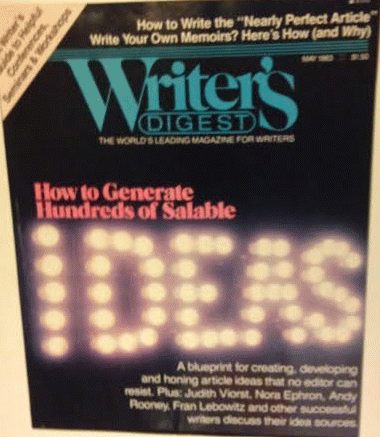If you want to reach the maximum possible number of online readers, it's essential that you create titles that are not only search engine friendly but search engine smart.
People may find your articles by looking for your writings, or when your relatives and friends refer them. But besides that first dozen readers, if you want hundreds, thousands or tens of thousands of readers, you need to create titles that actually tell the reader what your article is about.
I can't tell you, as an editor-in=chief, publishing over 1000 articles a month, how many obscure, meaningless titles I see come into the queue. Often, the writer has spent hours or days working hard on creating an superb article, then, as an afterthought, with minimal effort or conscious thought, drops a title on it-- a title that can literally slash the potential number of readers by 50 or even 90%.
The most winning articles use key words, the most important key words first.
I learned about the power of titling early on in my writing career and even sold a cover article to Writers Digest, titled, "How to Generate Hundreds of Salable Ideas," which focused, to a large extent, on coming up with article titles.

The Writer's Digest Cover Featuring my article on pitching articles
(Image by Writer's Digest) Details DMCA
Look at titling from an editor's perspective. Here, articles are submitted to a queue which often sees 40-80 new articles coming in every day. Editors go to the queue and decide which articles to evaluate. I can tell you that the title is one of the most important factors editors use in deciding which article to check out. A weak title can languish for days if no editor chooses to evaluate it. Eventually, someone gets to it, but that's just the beginning. If an article is published with a weak title, there's a good chance it will not be headlined and ultimately, will fail to attract the readers a good title could have attracted.
It may be tempting to use a cute turn of a phrase but such titles are usually a real negative when it turns to affecting the chances you'll get lots of readers.
Here are some titles that don't cut it as search engine optimized:
Say it ain't so.
These are choices
Just Thinking Out Loud
Why did this happen?
Now, here's a title that did well, that is not search engine optimized.
"It's Not Going to Be Okay."
The reason this article did well is because it is written by a famous writer, Chris Hedges, and it was headlined. But don't think, if you're not famous, that your obscure title will do well. Editors are less likely to headline obscure titles that don't tell what the article is about and readers are less likely to click on them-- if they ever see them. Remember, because the title is not SE optimized, it probably won't show up on Google or other searches.
The best way to title an article is to tell what the article is about and to use the key words that someone doing a Google or yahoo or other search engine would use.
If you've written an article on the failure of one Republican to vote for the financial rescue legislation, discussing the lack of bi-partisanship, then use those terms:
Republican Bipartisan Failure in House Financial Rescue Vote
It's not sexy, but it uses all the keywords. This could double or quadruple the hits you get from google news, Twitter or wherever people search.
Want to make it sexier? Try something like "BiPartisan Bombs In House Financial Rescue Vote"
(Note: You can view every article as one long page if you sign up as an Advocate Member, or higher).





